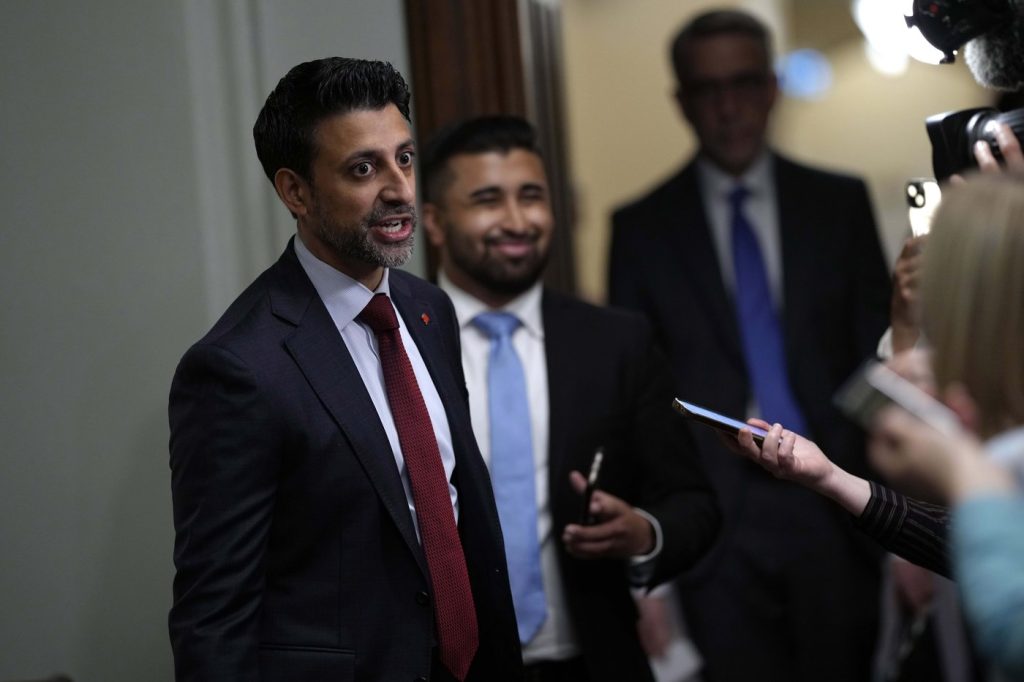The newly appointed trade minister of Canada, Maninder Sidhu, has expressed his intention to enhance trade relations with countries in South America, Southeast Asia, Africa, and other regions. He emphasized the importance of not only negotiating new trade deals but also encouraging Canadian businesses to leverage existing agreements. "My primary role as Canada’s top salesman is to be out there hustling, opening doors for businesses and accessing new markets," Sidhu stated.
Prime Minister Mark Carney has designated Dominic LeBlanc as the minister responsible for Canada-U.S. trade, while Sidhu will focus on trade relationships outside of the United States. According to Export Development Canada, Ottawa currently has 15 free trade agreements that cover 51 countries, providing Canadian exporters with preferential access to over 1.5 billion consumers. In light of increasing tariffs imposed by Washington, Sidhu believes that Canadian businesses should consider diversifying their trade activities beyond the U.S.
Having served four years as a parliamentary secretary across all three branches of Global Affairs Canada—aid, trade, and diplomacy—Sidhu has represented Canada in various trade promotion events in Southeast Asia and security forums in the Caribbean. His previous experience as a customs broker, which involved navigating tariffs and red tape, informs his current role.
Sidhu plans to visit Brazil to rekindle trade discussions that began back in 2018 between Canada and the Mercosur trade bloc. He aims to adopt a different approach from his predecessor, Mary Ng, who prioritized extensive trade missions that often took months to organize. Instead, Sidhu is inclined to form smaller delegations of Canadian companies tailored to specific sectors during his international trips.
This new approach, he believes, will ensure that businesses feel their voices are heard and that they receive high-level meetings in the countries they visit. Furthermore, Ottawa is reassessing its trade relations with China as both nations work to rejuvenate the decades-old Joint Economic and Trade Commission to address ongoing trade issues. Sidhu noted that despite the challenges posed by perceived coercive trade practices and restrictions by China, the objective remains to offer "stability" to the industry.
Moreover, he has expressed skepticism regarding the potential for a bilateral trade agreement with the United Kingdom after trade talks collapsed last year due to disagreements over agricultural imports. Both Canada and the U.K. will continue to operate under a temporary arrangement established post-Brexit. Sidhu indicated that while Canada is open to a full trade deal with the U.K., the focus will remain on ensuring optimal value in negotiations as Canada already enjoys access to 99% of goods traded with the U.K.
Sidhu has also suggested that Canada may explore "sector-specific agreements" with other nations instead of broad, comprehensive trade deals. However, he stopped short of naming specific countries for such arrangements. Previously, Canada had been pursuing a trade deal with India limited to particular sectors, but talks were halted in 2023 due to political tensions linked to an assassination attributed to New Delhi.
While security discussions with India have commenced this spring, Sidhu was noncommittal about the timeline for resuming trade negotiations, advocating for a methodical "step-by-step approach." At the same time, he is working with Global Affairs Canada to assess the implications of Carney's funding cuts across departments on the trade branch.
The Business Council of Canada has urged the government to increase the number of trade commissioners, crucial for providing Canadian businesses with on-the-ground support in foreign markets. Although Sidhu did not clarify whether cuts will lead to a reduction in trade commissioners, he acknowledged the strong feedback from chambers of commerce regarding the importance of these roles. "It comes down to return on investments, what programs are working (and) where can we get the best bang for our buck for Canadian industry and Canadian workers," he noted.
Sidhu recognizes that many in the business community may not be aware of the services offered by the Trade Commissioner Service and aims to "amplify" this information to better support Canadian businesses in their international endeavors.











